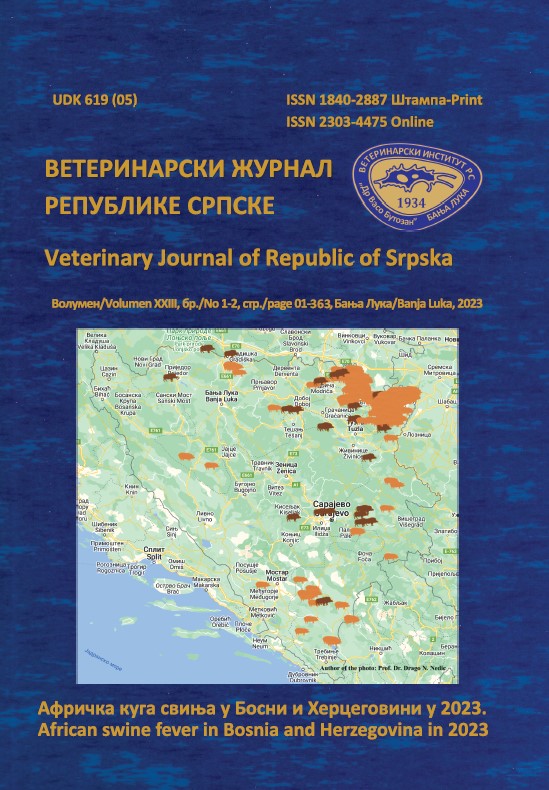NOVEL STRATEGIES FOR THE CONTROL OF GASTROINTESTINAL NEMATODES IN SHEEP
DOI:
https://doi.org/10.7251/VETJEN2301227SAbstract
Gastrointestinal nematodes are very important parasites of domestic animals, especially in small ruminants. In sheep, diseases usually have a subclinical form with a decrease in body weight and production, and sometimes there can be visible clinical symptoms such as anorexia, anemia, severe diarrhea and protein loss, all of which together can lead to death. Commercial drugs such as benzimidazole and macrocyclic lactones have been successfully used for decades to control these parasites. However, the irrational application of these drugs has led to the development of anthelmintic resistance, a decrease in their effectiveness and consequent economic losses that threaten the sustainability of sheep breeding. In addition, the use of commercial preparations is also associated with the residues in animal products and the environment, and there is also an increase in the price of these preparations. For this reason, novel strategies for controlling of these parasites are actively seeking, with the goal of establishing an integrated approach that involves the application of several different strategies. On the one hand, these include strategies for the rational application of commercial preparations based on refugia (targeted treatments, targeted selective treatments), as well as the combination and rotation of anthelmintics from different chemical groups. On the other hand, an integrated approach implies the use of different alternative strategies such as genetic selection of animals naturally resistant to nematodes, rational management of pastures, balanced nutrition with supplementary nutrients, biological control (use of fungi, bacteria, etc.), development of vaccines as well as the use of botanical preparations (plants and their products such as extracts and essential oils). Various studies have proven the effectiveness of the mentioned strategies in the control of gastrointestinal nematodes of sheep, whereby the best results are achieved by their combined application. Thus, it is possible to slow down the development and spread of anthelmintic resistance, as well as achieve sustainable control of these parasites and reduce economic losses.

